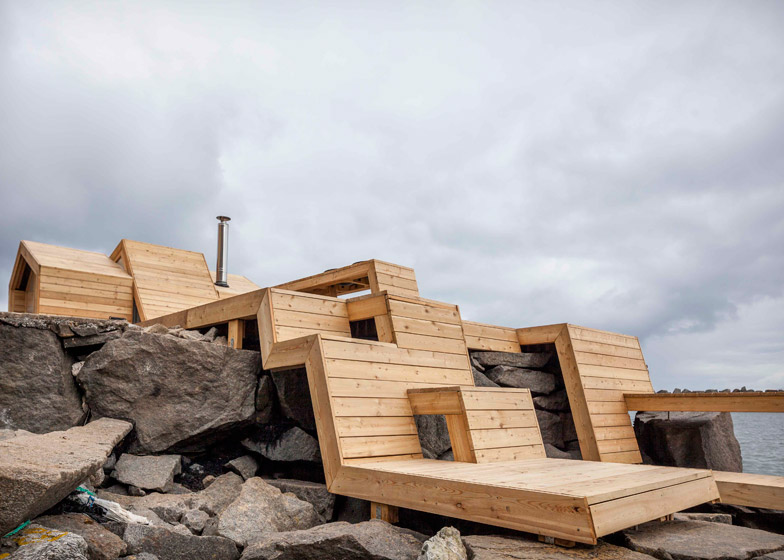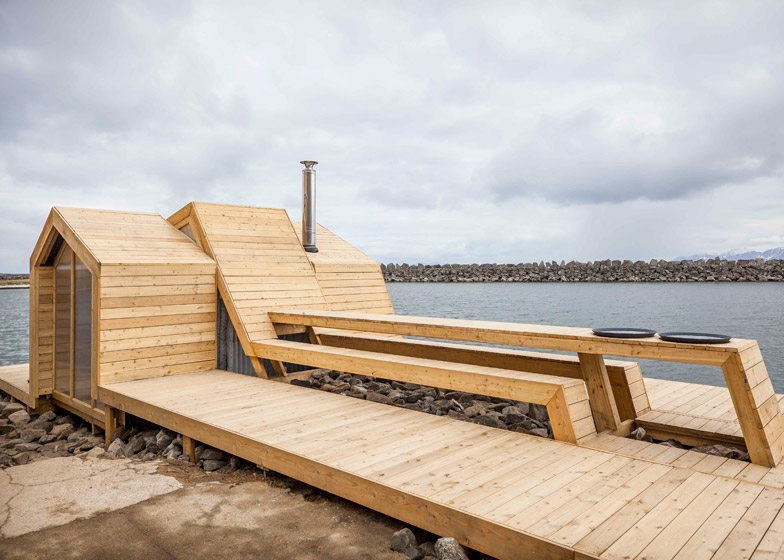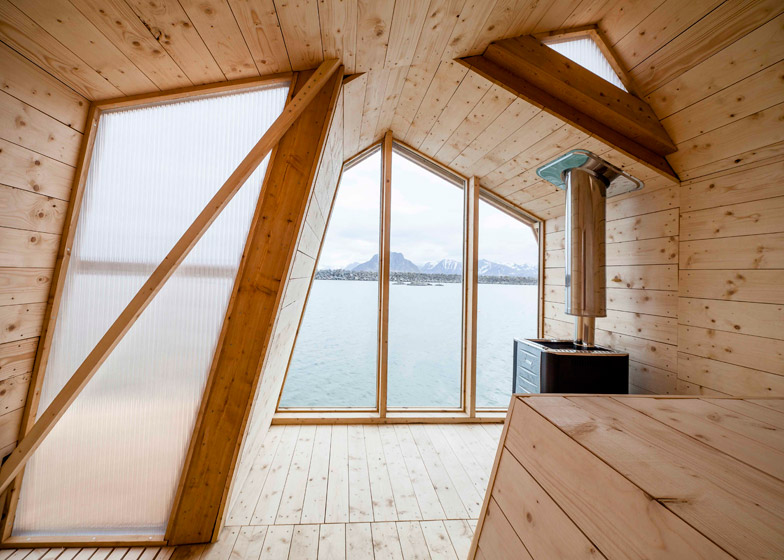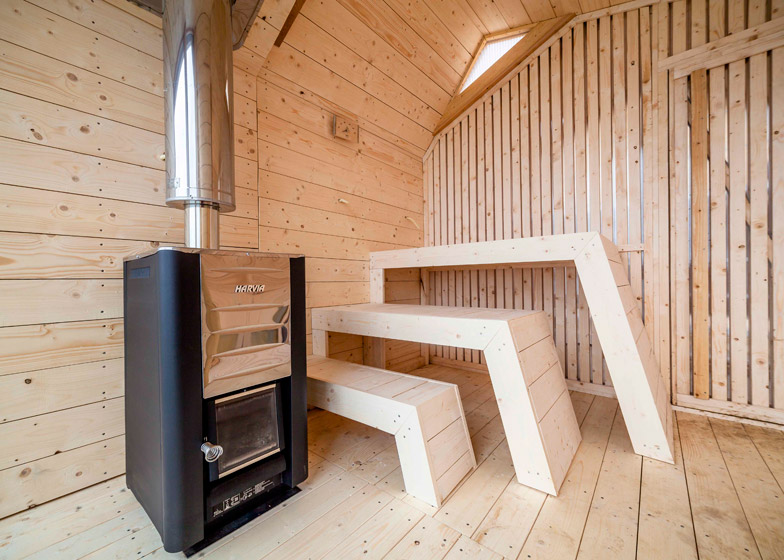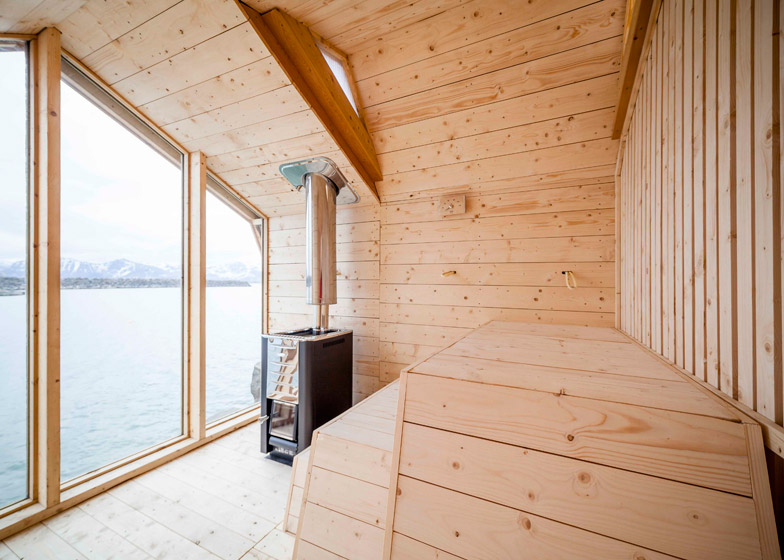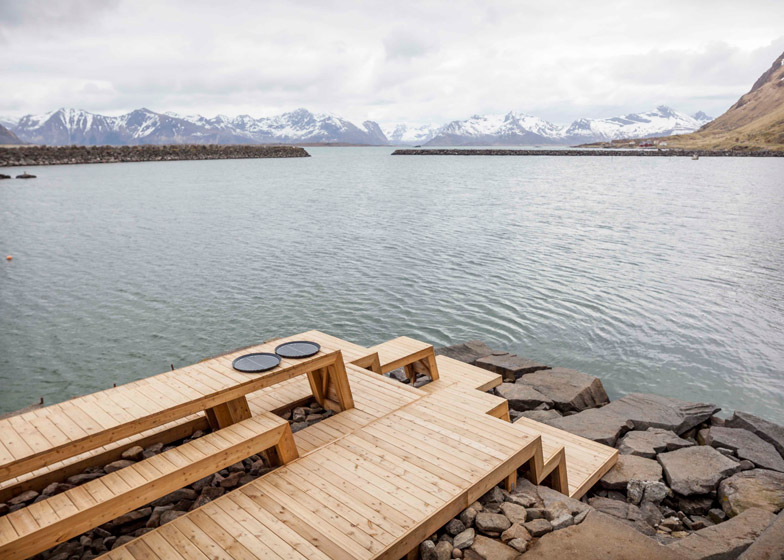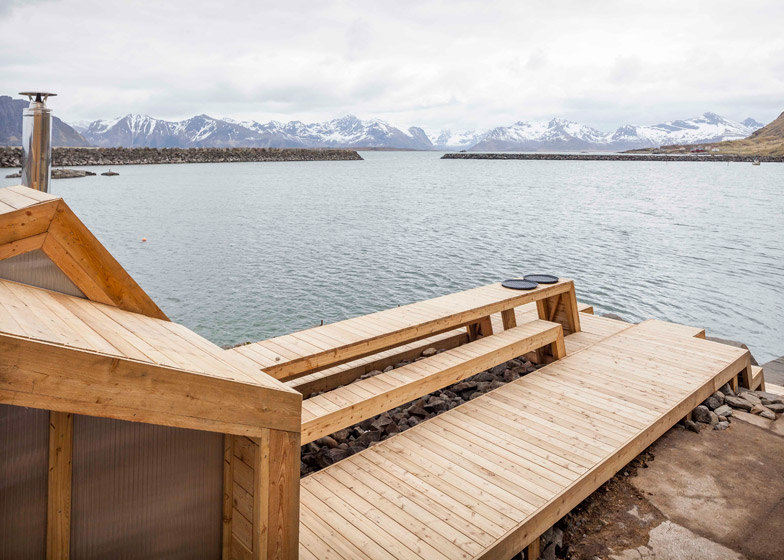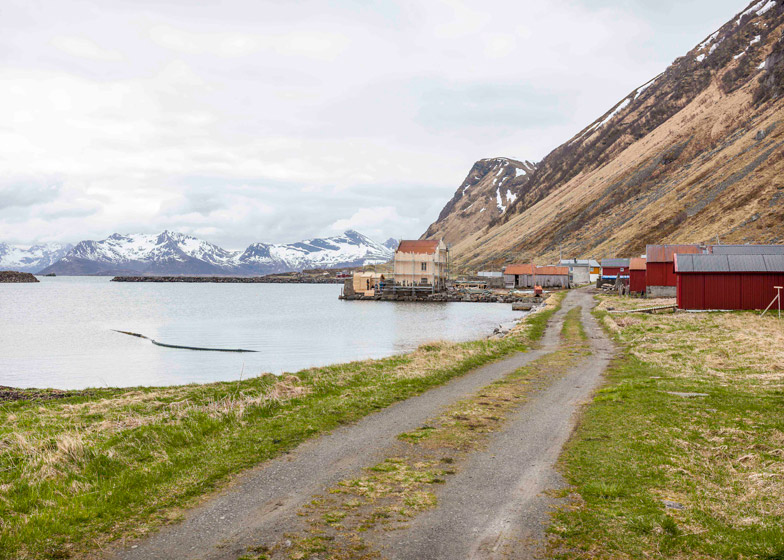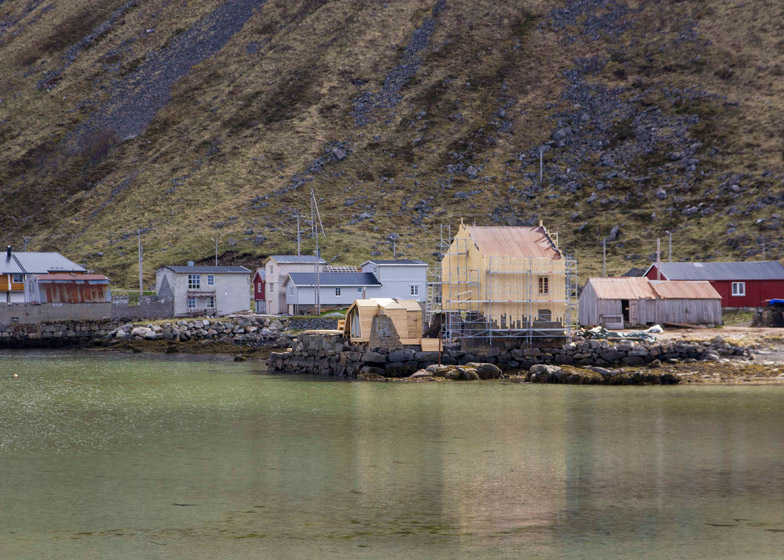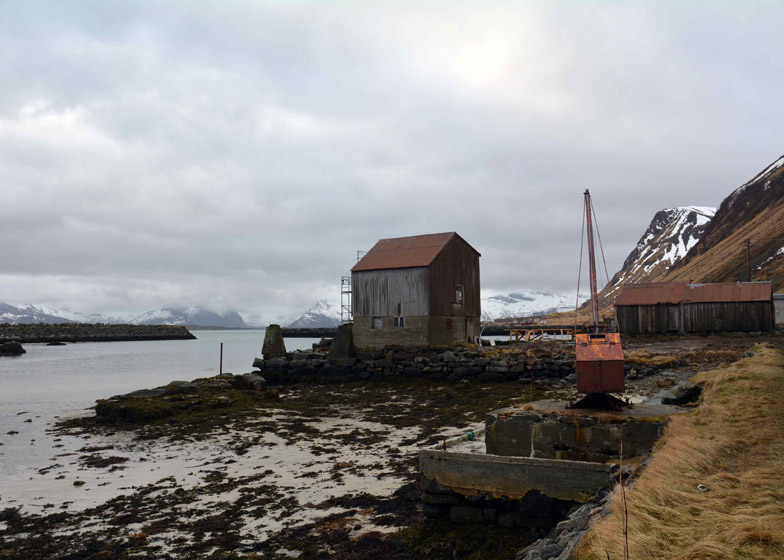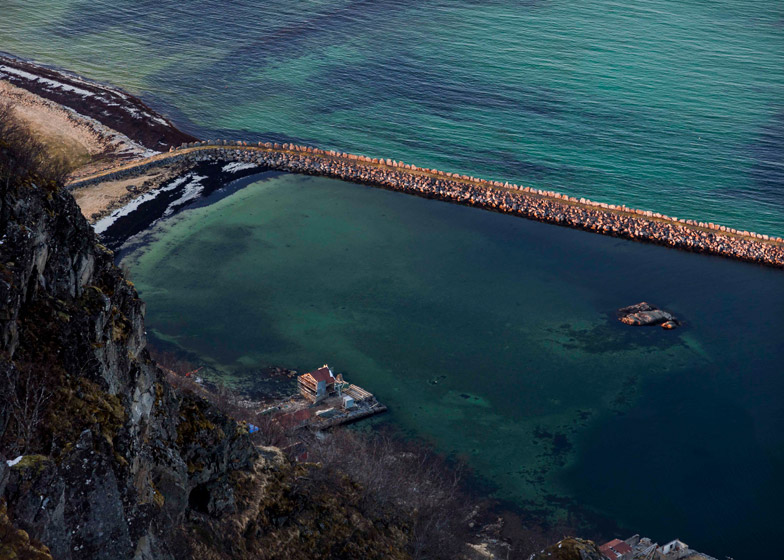Graduate shows 2015: students from the Oslo School of Architecture and Design have designed and built a seaside sauna made up of three wooden bands that stagger up over the rocky terrain (+ slideshow).
Named The Bands, the structure comprises a trio of two-dimensional profiles. These sit side by side, creating the forms of a sauna building, a picnic terrace and a sunken hot tub, all boasting views over a Norwegian mountain landscape.
The project was developed by the Scarcity and Creativity Studio (SCS), a design and build studio within the Oslo School of Architecture and Design.
It is located on the quay of a former fishing village in Lofoten – the archipelago where Snøhetta is building its sinuous hotel.
"The project is located at the end of the quay, aiming for a sensitive relation with the landscape and a direct contact with the water," said the team, which was led by tutors Christian Hermansen, Solveig Sandness and Marcin Wojcik.
The 15-square-metre sauna building stands close to the water's edge. Due to the ribbon-like design, the building has three different gabled roof profiles – the first is symmetrical, while the other two lean in opposite directions.
"The sauna is created by the rising of the three bands that move independently, creating shifts and offsets that allow the light to come inside and generate the different spaces within it," said the designers.
This arrangement creates a series of clerestory windows. It also makes the building look like three separate cabins, referencing the three existing buildings on the quay – a fisherman's cottage, a cod liver oil production building and a cod salting building.
"These buildings date back to the early 1900s and are considered historically important because they are the remains of a form of life in this region which has ceased to exist," added the team. "For these reasons the quay and three buildings have been listed in the Cultural Heritage Plan for Lofoten, adopted by Nordland county in 2007."
Inside, there is a wood-burning stove and a built-in wooden seating area.
The team used larch to build the framework and surfaces of the building and terrace. Glass was added to give a transparent end wall to the sauna, while other windows use translucent polycarbonate plastic.
On the terrace, the middle band splits into three to create two benches and a dining table. A sunken opening underneath the table contains a barbecue.
At the end of the terrace, all three bands step down over the rocky ground to allow access to the water's edge, and also create an area that can be used for preparing freshly caught fish.
On the opposite side of the sauna, a smaller terrace accommodates the hot tub, which can also be used as a plunge pool.
The project was installed in 24 days across May and June, and the team kept a record of each day's activities by posting photos and information on their blog, also called The Bands. Previous students on the course have built similar structures, varying from a small holiday cottage to a wooden bridge.
Oslo's architecture school is one of many that run a regular design and build course for students. One of the best known is London's Architectural Association, which invites students to build structures in a Dorset wood, and there's also the MEDs workshop that works with students around the world. Students at Kingston University also recently unveiled a scale replica of a gateway to an ancient temple in Japan.
Photography is by Jonas Aarre Sommarset unless specified otherwise.
Project credits:
Design: Scarcity and Creativity Studio, The Oslo School of Architecture and Design
Supervision: Christian Hermansen, Solveig Sandness, Marcin Wojcik
Designers: Mathilde Azriel, Ines Bendelac, Tommy Degerth, Eline Egeland, Bruguers Gallego-Guiu, Sigrid Bergitte
Gilberg, Matteo Grometto, Thea Andrea Jetmundsen, Marianna Laurila, Matteo Lomaglio, Lodewijk Luken, Jon Mannsåker, Ida Helene Holm Mjelde, Une Tangen Rekstad, Michelle Schneider, Kristina Skarphol, Miguel Saludas, Irene De Santos, Jonas Aarre Sommarset, Anna Rosa Strassegger, Emiel Vercruysse, Maria Årthun

